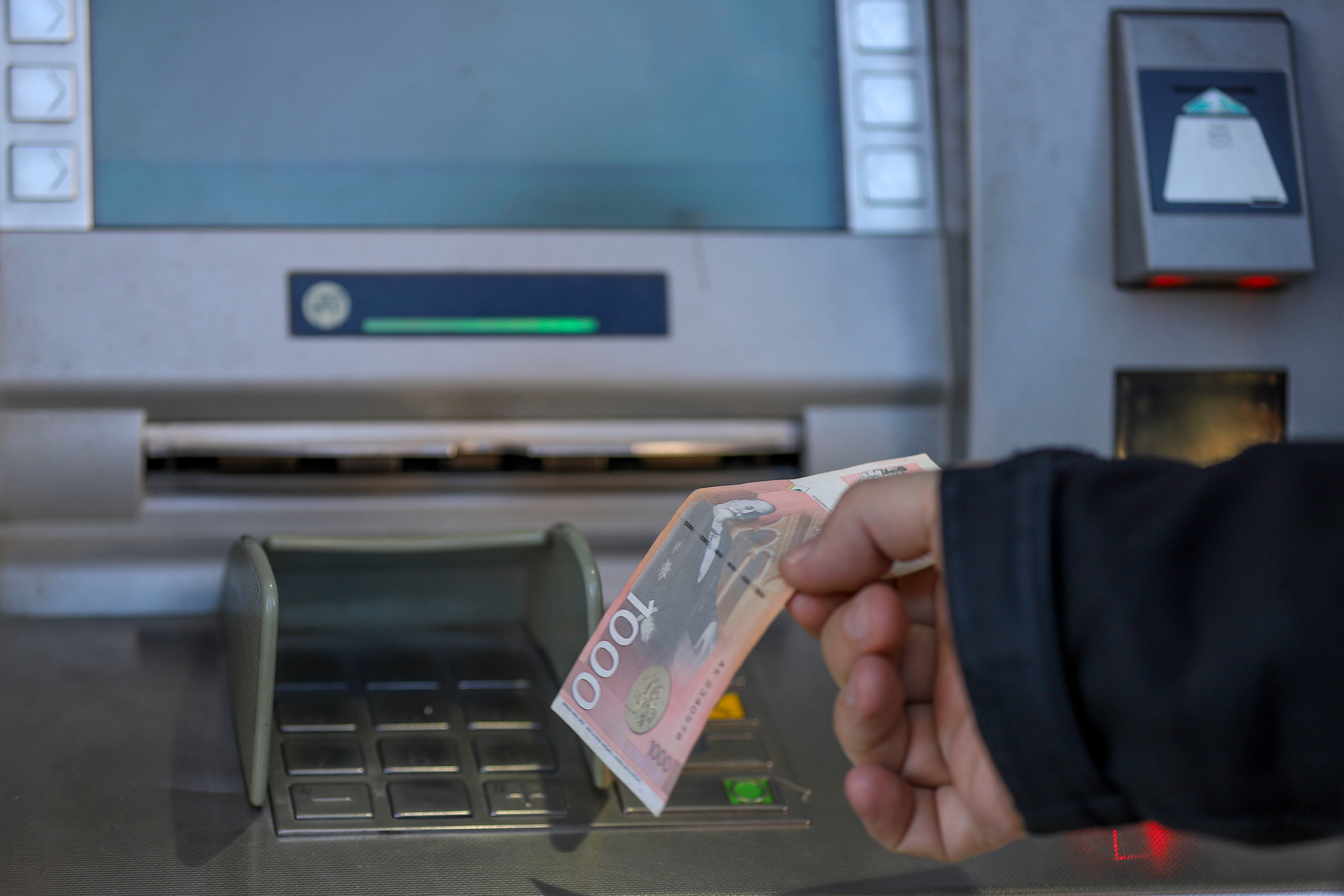Minority Serbs protest Kosovo’s decision to abolish the Serbian dinar currency
Thousands of minority Serbs in Kosovo have protested a ban of the use of the Serbian currency in areas where they live

Your support helps us to tell the story
From reproductive rights to climate change to Big Tech, The Independent is on the ground when the story is developing. Whether it's investigating the financials of Elon Musk's pro-Trump PAC or producing our latest documentary, 'The A Word', which shines a light on the American women fighting for reproductive rights, we know how important it is to parse out the facts from the messaging.
At such a critical moment in US history, we need reporters on the ground. Your donation allows us to keep sending journalists to speak to both sides of the story.
The Independent is trusted by Americans across the entire political spectrum. And unlike many other quality news outlets, we choose not to lock Americans out of our reporting and analysis with paywalls. We believe quality journalism should be available to everyone, paid for by those who can afford it.
Your support makes all the difference.Thousands of minority Serbs in Kosovo on Monday protested a ban of the use of the Serbian currency in areas where they live, an issue that has been the cause of the latest crisis in relations between Serbia and Kosovo.
Tensions escalated after the government of Kosovo, a former Serbian province, banned banks and other financial institutions in the Serb-populated areas from using the dinar in local transactions, starting February 1, and imposed the euro.
The dinar was widely used in ethnic Serbian-dominated areas, especially in Kosovo’s north, to pay pensions and salaries to staff in Serbian-run institutions, including schools and hospitals.
The ban has angered both Kosovo Serbs and Serbia. The leaders of Serbia and Kosovo sparred over the issue at a meeting at the United Nations Security Council.
Protesters at the rally in the Serb part of the divided northern Kosovo town of Mitrovica said that abolishing the dinar violates the rights of the Serbs in Kosovo and is discriminatory. They urged the international community to put pressure on the Kosovo government to reverse the move.
“This virtually means taking away food from our tables,” said Dusanka Djorovic, from a local pensioners' association.
Dragisa Milovic, a doctor, said that Kosovo's decision "is aimed at abolishing Serb institutions in these areas.”
In Pristina, Kosovo's Prime Minister Albin Kurti dismissed such criticism in a message to the Kosovo Serbs. Kurti insisted that the new measure is aimed at curbing illegal money flow and "does not stop Serbia from financially assisting the citizens of Kosovo’s Serb community.”
“Kosovo did not stop the dinar, or the dollar, pound, or Swiss franc," said Kurti. “The only change from Feb. 1 is that the cash cannot cross the border in sacks ... but should come through bank accounts and (be) withdrawn in euros.”
In 1999, a 78-day NATO bombing campaign ended a war between Serbian government forces and ethnic Albanian separatists in Kosovo. Serbian forces were pushed out but Belgrade never recognized Kosovo’s independence and still considers it a Serbian province.
The European Union and the United States have expressed concern that Kosovo’s ban of the dinar could raise tensions in an already volatile region and called for consultations and a delay in the ban.
The EU has brokered negotiations between Serbia and Kosovo in a bid to normalize their relations but the talks have showed slow progress while occasional violent incidents have fuelled fears of instability in the Balkans as the war rages in Ukraine.